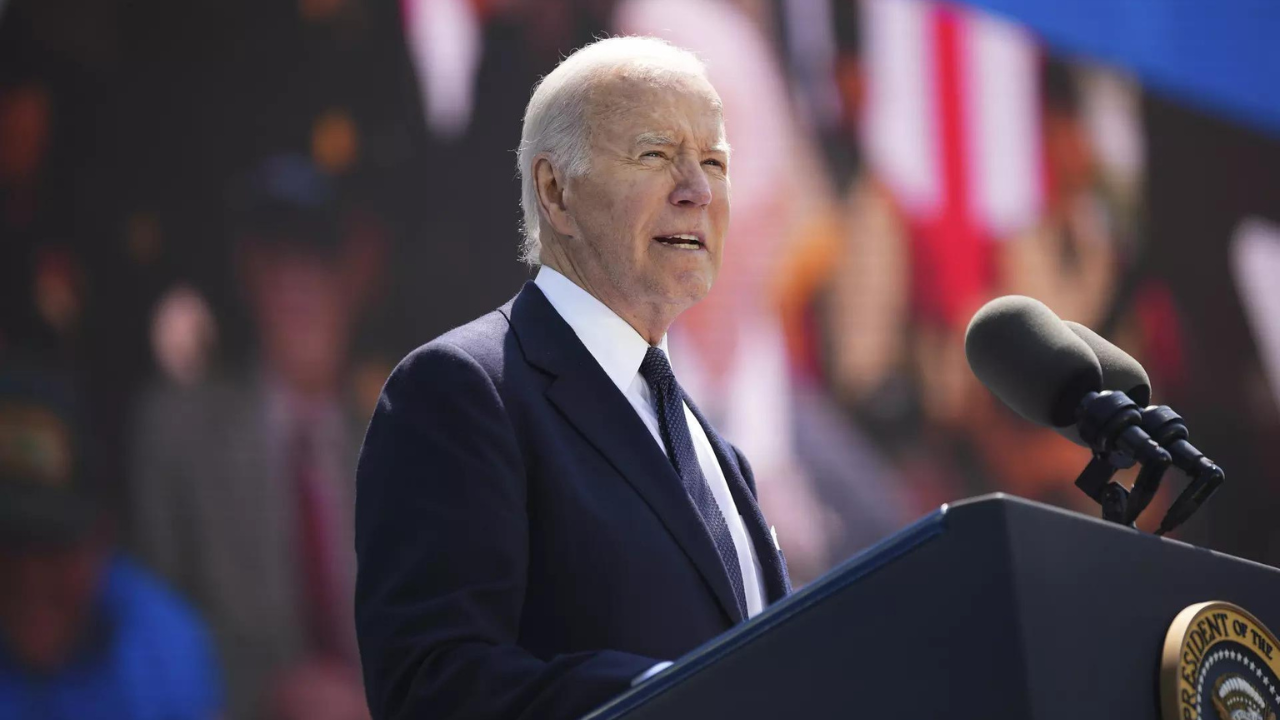Hamas Chief And "Mass Murderer" Yahya Sinwar Eliminated: Israel
Israel said Thursday its forces killed Hamas chief Yahya Sinwar in a Gaza operation, dealing a massive blow to the group it has been fighting since the October 7, 2023 attack.

Israel said Thursday its forces killed Hamas chief Yahya Sinwar in a Gaza operation, dealing a massive blow to the group it has been fighting since the October 7, 2023 attack.
"The mass murderer Yahya Sinwar, responsible for the massacre and atrocities of October 7, was eliminated... by IDF (Israeli military) soldiers," Foreign Minister Israel Katz said in a statement.
The military later confirmed that "after a year-long pursuit", soldiers "eliminated Yahya Sinwar, the leader of the Hamas terrorist organisation, in an operation in the southern Gaza Strip" on Wednesday.
Hamas has not confirmed his death.
Israel accuses Sinwar of masterminding the October 7 attack, the deadliest in Israeli history, and had been hunting him down since the start of the Gaza war.
He rose through the ranks of the Palestinian group to become first its leader in Gaza, then its overall head after the killing in July of political chief Ismail Haniyeh.
Israel's announcement on Sinwar comes weeks after it assassinated Hezbollah chief Hassan Nasrallah in a massive strike in Lebanon, where the Israeli military has been at war since late September.
A slew of other Iran-backed operative commanders have also been killed in recent months.
Israel said earlier this year that it had killed Mohammed Deif, Hamas's military chief, though the Palestinian group has not confirmed it.
Deif stood accused of planning, with Sinwar, the October 7 attack.
With Hamas massively weakened more than a year into the Gaza war, Sinwar's death could deal a seismic blow to the organisation.
Before the Israeli foreign minister confirmed Sinwar's death, the military said in a brief statement that during "operations in the Gaza Strip, three terrorists were eliminated", with the Hamas leader possibly one of them.
An Israeli security official told AFP that the military was conducting a DNA test on a operative's body to confirm whether it was Sinwar's.
In a post on X, Israel's Defence Minister Yoav Gallant said the country would "reach every terrorist and eliminate them".
US President Joe Biden was briefed aboard Air Force One while heading to Germany and was being kept informed of developments, a US official said Thursday.
War on many fronts
Israel has been at war with Hamas since the October 7 attack, which resulted in the deaths of 1,206 people, mostly civilians, according to an AFP tally of official Israeli figures.
Israel's retaliatory campaign in Gaza has killed 42,438 people, the majority civilians, according to data from the health ministry in the Hamas-run territory, which the UN considers reliable.
Following the attack, Prime Minister Benjamin Netanyahu vowed to crush Hamas and bring home all 251 hostages seized by operatives in their cross-border onslaught. Ninety-seven remain in Gaza, including 34 Israeli officials say are dead.
Israel has since expanded the scope of its operations to Lebanon, where Hamas ally Hezbollah opened a front against Israel by launching low-intensity cross-border strikes that forced tens of thousands of Israelis to flee their homes.
Israel on Thursday launched strikes on the south Lebanese city of Tyre, where the group and its allies hold sway.
Israel also issued evacuation warnings for civilians in parts of Lebanon's eastern Bekaa Valley, a Hezbollah stronghold.
It had earlier struck a Hezbollah target in Syria, according to a war monitor, while Israel's main ally the United States used heavy bombers to hit rebel targets in Yemen.
Syria, the Huthi rebels in Yemen, Hezbollah in Lebanon and Hamas in Gaza all belong to the "axis of resistance" of groups aligned with Iran.
Tehran on October 1 conducted a missile strike on Israel, over which Israel has vowed to retaliate, sparking concern around the world that what is already a war on multiple fronts could morph into an all-out regional conflict.
Iran warning
Iran's Revolutionary Guards chief Hossein Salami on Thursday warned Tehran would hit Israel "painfully" if it attacks Iranian targets.
The Syrian Observatory for Human Rights, a Britain-based monitor, said the Israeli raid on the Syrian city of Latakia targeted a "weapons depot belonging to Hezbollah".
The Israeli military did not comment on the strike when contacted by AFP.
In Huthi-controlled areas of Yemen, the United States conducted multiple B-2 bomber strikes on weapons storage facilities, according to the US military and defence department.
The Huthis' political bureau said "the American aggression will not pass without a response", and vowed to continue the group's "support and assistance to Gaza and Lebanon".
The war in Lebanon since last month has left at least 1,373 people dead, according to an AFP tally of Lebanese health ministry figures, though the real toll is likely higher.
Israeli troops and Hezbollah fighters have been clashing near Lebanon's southern border, where Hezbollah on Thursday said it hit four Israeli tanks with guided missiles.
Rescue workers affiliated with the Amal party, a Hezbollah ally, in the southern city of Qana were digging through the rubble of several buildings destroyed in strikes this week.
"More than 15 buildings have been completely destroyed, total destruction in a neighbourhood in Qana," said Mohammed Nasrallah Ibrahim, one of the rescuers.
Israel has faced criticism over its strikes in Lebanon, including from its tops arms supplier the US.
Hunger in Gaza
In northern Gaza's Jabalia, two hospitals said Israeli air strikes on a school sheltering displaced people killed at least 14 people.
The military reported that it had hit operatives.
Some 345,000 Gazans face "catastrophic" levels of hunger this winter after aid deliveries fell, a UN-backed assessment said Thursday, warning of the persistent risk of famine.
Nearly 100 percent of Gaza's population now lives in poverty, with a "staggering" unemployment rate of nearly 80 percent, the UN's International Labour Organization said on Thursday.
The impact of the war on Gaza "will be felt for generations to come," said the ILO's Ruba Jaradat.
(Except for the headline, this story has not been edited by NDTV staff and is published from a syndicated feed.)



































![Safari Thorium Neo 8-Wheel Luggage Set Trolley Bags (Set of 3) at just Rs. 5,599 [MRP 29,100]](https://savefree.in/uploads/images/202409/image_870x580_66f63845060f0.webp?#)












![Handmade Brown Mango Wood Chopping Board At just Rs. 89 [MRP 599]](http://savefree.in/uploads/images/202303/image_870x580_641bf7e9c2206.jpg?#)



